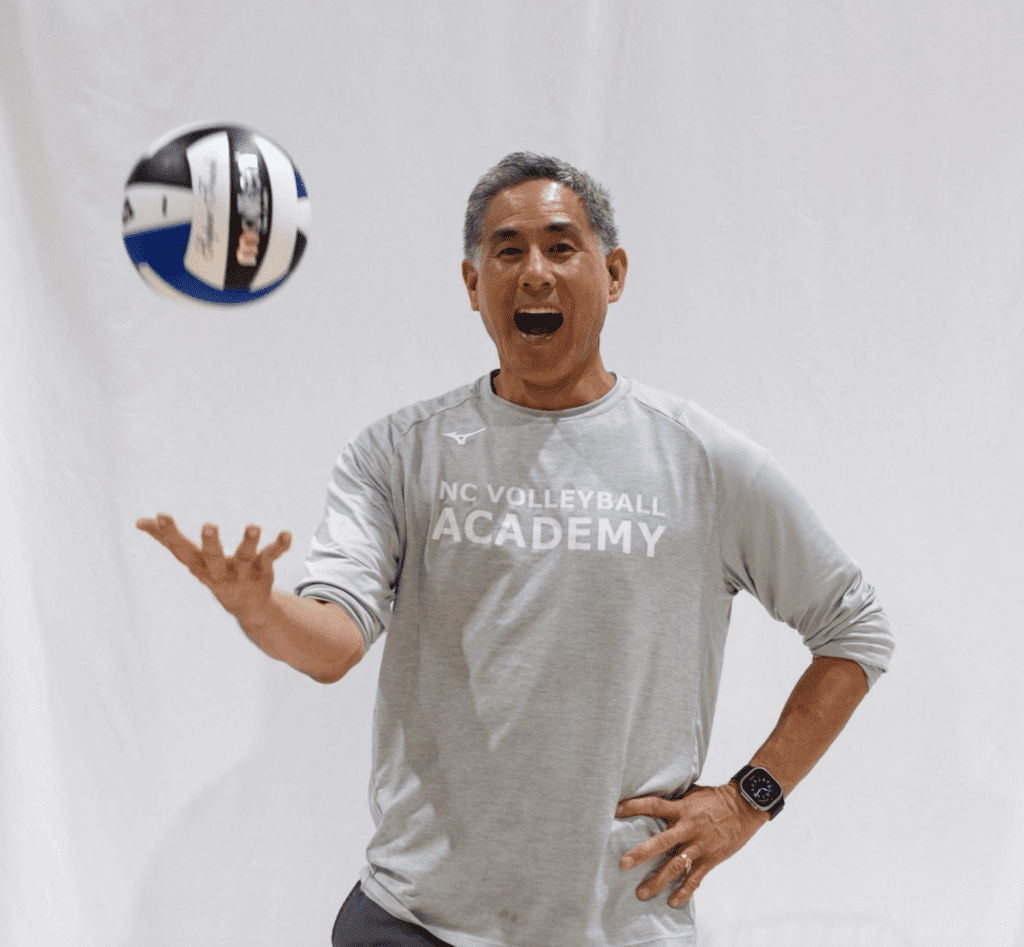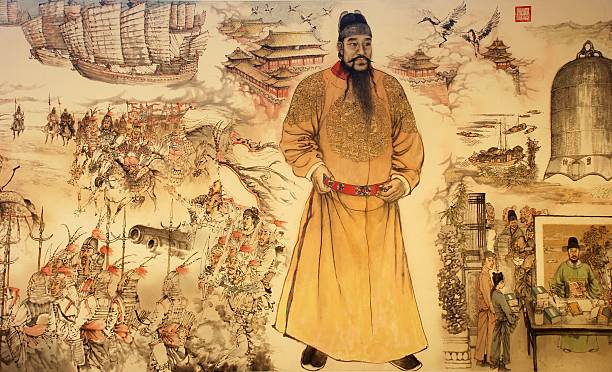What was it like growing up in Rochester as a Chinese-American? Were there any standout memories?
The town I grew up in was mostly Jewish American folks and there were few Chinese people in the area. My high school probably had about 4 families in my grade that were Chinese and we knew each other pretty well. One of them was Shu-Huan Wang who was my neighbor and we would walk to school many of the days. He was the one who brought me to Christ many years later. For the most part, I grew up like an average everyday American boy and didn’t feel very different from any other boy that was in the area.
How did your parents balance Chinese traditions with raising you in the U.S.? Did that influence how you raised your own kids?
My parents originally spoke to my brother and I in Chinglish (English mixed with Chinese) when we were very young. I remember not being able to speak to our babysitter because we were saying words that were in Chinese without us knowing it wasn’t English. They also sent us to Chinese school on Saturdays, which we both hated, but it was great seeing other Chinese folks. My Mom cooked mostly Cantonese food and we did visit Hong Kong in my early years. That was about it though, as soon as school started, we quickly forgot any Chinese and mostly followed American traditions. If I were to do it all over again, I would have loved to have kept using Chinese at home. I would have loved to have done that for my kids, but I barely know any Chinese. I suppose one of the reasons for our recent move to China was to try to find root in Chinese culture and language for both me and my kids.
You’ve had an incredible career in software engineering—what drew you to this field, and what did you find most rewarding about it?
I’ve been a nerd for as long as I’ve known. As a little kid I was pretty quiet, studied hard and hung out with nerdy friends. My aunt bought us a computer when I was about 10 years old and since then I would be on that thing for hours on end programming stuff in BASIC. It was just a natural inclination to have computers do things for you that was fascinating to me. At first it was an adventure game, then it was a graphical game, then it was a bulletin board system, which was an electronic way of people leaving public or private messages to each other. There was always something a computer could do for you that was interesting.
After retiring, how has your perspective on life changed? Are there passions you’re exploring now that you didn’t have time for before?
You already know about my pickleball, my other 2 interests are Zumba and coaching volleyball, both I wouldn’t be able to do to the extent I do if I were full-time working. I also volunteer at Dorcas which is an organization that helps the local Cary/surrounding area folks either get back on their feet and also runs a thrift shop. All these things I enjoy a lot. The community is invaluable and I feel I’m healthier than I’ve ever been. I don’t feel my perspective on life has changed much, other than my faith perhaps, but that’s not the result of my retirement but the timing happened to coincide with this period. I’ll explain more in the next section.
Your faith seems central to your life now, especially reflected in your blog posts. What led to this deeper connection with spirituality?
My faith has really been a roller coaster to say the least. I grew up mostly as an atheist, as both of my parents were, although my Mom held some Daoist beliefs. My best friend and neighbor brought me to Christ when I was in college and I developed my Christian beliefs and life philosophies based on my new found beliefs through the next 25 or so years. I was deep in it and things were pretty clear to me back then. But 4-5 years ago, I’ve heard some interesting thoughts based off the pastors at my current church (Crosspointe) and recent readings including Marcus Borg and Bart Ehrman which takes me on my current faith journey which makes me unsure of a lot of the Christian beliefs I once held strongly. Currently I think it’s important to always be open to the possibility that my current ideas can be wrong and to be humble about listening to other viewpoints.
You mention wanting to be F.A.T (Faithful, Available, Teachable) and ‘full of it’—how do these values influence the way you mentor and connect with others?
I believe these still apply. I have a life mission statement and one of the key points is to “be there for people”. Many times in the urgency of life, the building and keeping of relationships (which always takes time) can be put on the backburner. But I’m always reminded that in the end, when we’re at the end, no one on their deathbeds wishes they spent more time at work.
What’s one of the most important lessons you learned raising your children?
Guide, but give space. Let them make their own mistakes.
You’ve reflected a lot on legacy and preparing for the future—how do you balance passing down cultural values with adapting to your children’s world today?
I’m not sure I’m big on passing down cultural values. I’d say there are certain character traits I value which I try to emphasize: honesty, being open, being humble, thinking of others, being content with what you have, keeping a sense of humor. I feel if I live my life with these things in priority it gets passed down through modeling.
Having recently experienced the loss of your father, how has this profound moment influenced your perspective on family, life, and the legacy you hope to leave?
There have been a few recent deaths in our family. A couple of aunt and uncles, some cousins, my sister in law and my Dad. It’s part of the stage of life that I’m at (which I don’t really remember seeing during my college years). And that brings a reminder that at this stage, time is more important than money. Use the time we have now to reconnect with lost ones, spend the effort and time to have reunions. Make sure things are prepared when I do pass away. These things I suppose have always been important to me, but now at this stage of life (over 50) it seems it has more urgency.
What role do you think education plays in helping kids discover who they are, especially as Asian Americans balancing two cultures?
I actually think it’s the other way around… culture plays a role in how we see education. As an Asian, I feel more emphasis is placed on the value of education. One example is I always have thought the path going forward is to go to college. It was never a question of whether I should go to college or not. I don’t feel all cultures have the same emphasis on education. One character of Asian culture is hard discipline. This can be good and bad. An example of good discipline is when we study to get good grades and graduate out of HS or college, it builds a character of persevering or suffering to get to a goal. An example of bad discipline is when we work so hard we forget to take a step back and ask ourselves “why” do we do the things we do or if things can be done in a better way, i.e. thinking out of the box. I think that’s what American culture provides, the ability to give space and time during our education to play, be creative and think about the bigger picture.
If you could give one piece of advice to parents today, especially in helping their kids grow into resilient, grounded individuals, what would it be?
Keep the communication lines open. When you’re able to connect with the kids, you’re still an influence to them. When you close the lines, you start going in different paths.
I’ll give an example. Let’s say you think your kid is dating the wrong person. A parent’s first inclination might be to ground the kid and disallow her to go out with her boyfriend. She’s probably going to go out with the person anyways, this time without you knowing about it. She’s not going to say anything to you because she knows you won’t agree. The communication line has been broken. I would go the route of letting her continue to go out with him, but to ask her to tell you more about why she likes him, try to find out more about the guy, maybe invite the guy over for dinner. It’s more important for you to keep the lines open than for you to get them to break up. This is a true story by the way. 🙂





